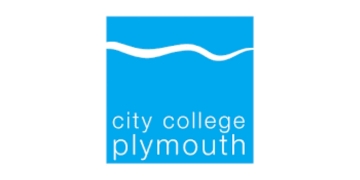The national 16 to 18 A*-C pass rates in 14/15 were 35.8 per cent (38.9 per cent) for GCSE maths and 35.1 per cent (37.9 per cent) for English — a drop of 3.1pp and 2.8pp respectively on 13/14.
Success rates are published soon and they’ll be down too.
That’s because these GCSEs (and Functional Skills if entry grade is below D) are now mandatory for youngsters without the C grade.
Are pass rates around 35 per cent good enough given that after 11 years of schooling many learners didn’t get the C grade and, for some, that’s after several attempts? Learner numbers rocketed across FE and schools — maths GCSE up 30 per cent to 130,979 on 13/14, English up 23 per cent to 97,163.
We have 819 learners taking GCSE English and 839 in maths — it’s big business for most FE colleges and 45 per cent up for us on two years ago
English and maths are vital and underpin most things we do. I’ve no problem with them being mandatory for everyone who hasn’t reached the C grade.
So why the new tolerance rule? The retrospective tolerance rule is perverse.
We’ll now lose half the funding for learners under the tolerance threshold. Rumour has it that the sector (all post-16 provision — school sixth forms too) would have lost £100m last year on the 100 per cent rule.
Most colleges gave learners the opportunity to progress and would not sacrifice funding in such difficult financial times. Did some providers run away from the challenge just to preserve success rates?
This year we have 819 learners taking GCSE English and 839 in maths — it’s big business for most FE colleges and 45 per cent up for us on two years ago.
When you factor in mandatory Functional Skills — 700 young learners taking English and the same number taking maths at level two or below and the high numbers of adults taking (free) English and maths then this reduced our overall college success rate by 1.6pp.
Fortunately we improved the rest of our work but we still ended up on 86.1 per cent — 0.8pp below last year. And 100 per cent of our learners who needed to be were on programme, but some simply refused to engage. Most colleges who played by the rules will report a fall.
By the way, I wish we could charge adults — ‘skin in the game’ improves retention, but we’ll always waive fees for the needy. I’m a fan of giving learners different routes to stardom. For example, the pilot core maths syllabus is a good ‘applied’ alternative to the standard maths A-level.
What’s wrong with having an applied/ employer-approved alternative level two maths syllabus, keeping the same standard and rigour as the GCSE? The Functional Skills level two should be a level two and not a grade D.
The FE sector excels in second chance and provision that is different to school. Don’t assume that school leavers have plateaued in their learning. We can add value. Or are we just looking to duck a challenge?
Others say yes, we can motivate disenchanted learners if we try new and different ways of teaching and show that the content and learning is relevant — essential life skills — then we’re in with a chance. We have to change learner (and staff) mindsets from ‘have to’ to ‘want to’.
Make sure every teacher knows the English and maths syllabi so that they can include and reference in their own subjects. Do lots of staff CPD and use on-line learning materials to complement (not replace) the teacher — there’s some great stuff out there.
Get your inspirational teachers to run sessions to multiple groups — their enthusiasm will rub off on more learners.
And make the subjects fun — reduce the fear factor. Work with schools to offer struggling 14-year-olds a three-year GCSE programme with the final year at college. Schools need to recognise that FE can help learner progress. If you have any bright ideas to raise achievements to Shanghai levels let me know. We’ve got to get this right. We owe it to our learners and their career prospects.






How about improving the teaching Graham as a way of improving success rates? A novel concept I know; rather than trying to invent courses where people will do well.